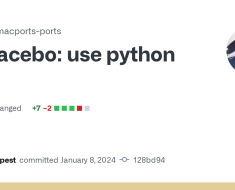@inproceedings{xi-etal-2023-self,
title = "Self-{P}olish: Enhance Reasoning in Large Language Models via Problem Refinement",
author = "Xi, Zhiheng and
Jin, Senjie and
Zhou, Yuhao and
Zheng, Rui and
Gao, Songyang and
Liu, Jia and
Gui, Tao and
Zhang, Qi and
Huang, Xuanjing",
editor = "Bouamor, Houda and
Pino, Juan and
Bali, Kalika",
booktitle = "Findings of the Association for Computational Linguistics: EMNLP 2023",
month = dec,
year = "2023",
address = "Singapore",
publisher = "Association for Computational Linguistics",
url = "https://aclanthology.org/2023.findings-emnlp.762",
doi = "10.18653/v1/2023.findings-emnlp.762",
pages = "11383--11406",
abstract = "To enhance the multi-step reasoning capabilities of large language models, researchers have extensively explored prompting methods, notably the Chain-of-Thought (CoT) method which explicitly elicits human-like rationales. However, they have inadvertently overlooked the potential of enhancing model reasoning performance by formulating higher-quality problems. In this work, we start from the problem side and propose Self-Polish (SP), a novel method that facilitates the model{'}s reasoning by guiding it to progressively refine the given problems to be more comprehensible and solvable. We also explore several automatic prompting varients and propose the Self-Polish prompt bank for the community. SP is orthogonal to all other prompting methods of answer/reasoning side like CoT, allowing for seamless integration with state-of-the-art techniques for further improvement. Thorough experiments show that the proposed method attains notable and consistent effectiveness on five reasoning benchmarks across different models. Furthermore, our method also showcases impressive performance on robustness evaluation. Codes and prompts are available at https://github.com/WooooDyy/Self-Polish.",
}
<?xml version="1.0" encoding="UTF-8"?>
<modsCollection xmlns="http://www.loc.gov/mods/v3">
<mods ID="xi-etal-2023-self">
<titleInfo>
<title>Self-Polish: Enhance Reasoning in Large Language Models via Problem Refinement</title>
</titleInfo>
<name type="personal">
<namePart type="given">Zhiheng</namePart>
<namePart type="family">Xi</namePart>
<role>
<roleTerm authority="marcrelator" type="text">author</roleTerm>
</role>
</name>
<name type="personal">
<namePart type="given">Senjie</namePart>
<namePart type="family">Jin</namePart>
<role>
<roleTerm authority="marcrelator" type="text">author</roleTerm>
</role>
</name>
<name type="personal">
<namePart type="given">Yuhao</namePart>
<namePart type="family">Zhou</namePart>
<role>
<roleTerm authority="marcrelator" type="text">author</roleTerm>
</role>
</name>
<name type="personal">
<namePart type="given">Rui</namePart>
<namePart type="family">Zheng</namePart>
<role>
<roleTerm authority="marcrelator" type="text">author</roleTerm>
</role>
</name>
<name type="personal">
<namePart type="given">Songyang</namePart>
<namePart type="family">Gao</namePart>
<role>
<roleTerm authority="marcrelator" type="text">author</roleTerm>
</role>
</name>
<name type="personal">
<namePart type="given">Jia</namePart>
<namePart type="family">Liu</namePart>
<role>
<roleTerm authority="marcrelator" type="text">author</roleTerm>
</role>
</name>
<name type="personal">
<namePart type="given">Tao</namePart>
<namePart type="family">Gui</namePart>
<role>
<roleTerm authority="marcrelator" type="text">author</roleTerm>
</role>
</name>
<name type="personal">
<namePart type="given">Qi</namePart>
<namePart type="family">Zhang</namePart>
<role>
<roleTerm authority="marcrelator" type="text">author</roleTerm>
</role>
</name>
<name type="personal">
<namePart type="given">Xuanjing</namePart>
<namePart type="family">Huang</namePart>
<role>
<roleTerm authority="marcrelator" type="text">author</roleTerm>
</role>
</name>
<originInfo>
<dateIssued>2023-12</dateIssued>
</originInfo>
<typeOfResource>text</typeOfResource>
<relatedItem type="host">
<titleInfo>
<title>Findings of the Association for Computational Linguistics: EMNLP 2023</title>
</titleInfo>
<name type="personal">
<namePart type="given">Houda</namePart>
<namePart type="family">Bouamor</namePart>
<role>
<roleTerm authority="marcrelator" type="text">editor</roleTerm>
</role>
</name>
<name type="personal">
<namePart type="given">Juan</namePart>
<namePart type="family">Pino</namePart>
<role>
<roleTerm authority="marcrelator" type="text">editor</roleTerm>
</role>
</name>
<name type="personal">
<namePart type="given">Kalika</namePart>
<namePart type="family">Bali</namePart>
<role>
<roleTerm authority="marcrelator" type="text">editor</roleTerm>
</role>
</name>
<originInfo>
<publisher>Association for Computational Linguistics</publisher>
<place>
<placeTerm type="text">Singapore</placeTerm>
</place>
</originInfo>
<genre authority="marcgt">conference publication</genre>
</relatedItem>
<abstract>To enhance the multi-step reasoning capabilities of large language models, researchers have extensively explored prompting methods, notably the Chain-of-Thought (CoT) method which explicitly elicits human-like rationales. However, they have inadvertently overlooked the potential of enhancing model reasoning performance by formulating higher-quality problems. In this work, we start from the problem side and propose Self-Polish (SP), a novel method that facilitates the model’s reasoning by guiding it to progressively refine the given problems to be more comprehensible and solvable. We also explore several automatic prompting varients and propose the Self-Polish prompt bank for the community. SP is orthogonal to all other prompting methods of answer/reasoning side like CoT, allowing for seamless integration with state-of-the-art techniques for further improvement. Thorough experiments show that the proposed method attains notable and consistent effectiveness on five reasoning benchmarks across different models. Furthermore, our method also showcases impressive performance on robustness evaluation. Codes and prompts are available at https://github.com/WooooDyy/Self-Polish.</abstract>
<identifier type="citekey">xi-etal-2023-self</identifier>
<identifier type="doi">10.18653/v1/2023.findings-emnlp.762</identifier>
<location>
<url>https://aclanthology.org/2023.findings-emnlp.762</url>
</location>
<part>
<date>2023-12</date>
<extent unit="page">
<start>11383</start>
<end>11406</end>
</extent>
</part>
</mods>
</modsCollection>
%0 Conference Proceedings %T Self-Polish: Enhance Reasoning in Large Language Models via Problem Refinement %A Xi, Zhiheng %A Jin, Senjie %A Zhou, Yuhao %A Zheng, Rui %A Gao, Songyang %A Liu, Jia %A Gui, Tao %A Zhang, Qi %A Huang, Xuanjing %Y Bouamor, Houda %Y Pino, Juan %Y Bali, Kalika %S Findings of the Association for Computational Linguistics: EMNLP 2023 %D 2023 %8 December %I Association for Computational Linguistics %C Singapore %F xi-etal-2023-self %X To enhance the multi-step reasoning capabilities of large language models, researchers have extensively explored prompting methods, notably the Chain-of-Thought (CoT) method which explicitly elicits human-like rationales. However, they have inadvertently overlooked the potential of enhancing model reasoning performance by formulating higher-quality problems. In this work, we start from the problem side and propose Self-Polish (SP), a novel method that facilitates the model’s reasoning by guiding it to progressively refine the given problems to be more comprehensible and solvable. We also explore several automatic prompting varients and propose the Self-Polish prompt bank for the community. SP is orthogonal to all other prompting methods of answer/reasoning side like CoT, allowing for seamless integration with state-of-the-art techniques for further improvement. Thorough experiments show that the proposed method attains notable and consistent effectiveness on five reasoning benchmarks across different models. Furthermore, our method also showcases impressive performance on robustness evaluation. Codes and prompts are available at https://github.com/WooooDyy/Self-Polish. %R 10.18653/v1/2023.findings-emnlp.762 %U https://aclanthology.org/2023.findings-emnlp.762 %U https://doi.org/10.18653/v1/2023.findings-emnlp.762 %P 11383-11406
Markdown (Informal)
[Self-Polish: Enhance Reasoning in Large Language Models via Problem Refinement](https://aclanthology.org/2023.findings-emnlp.762) (Xi et al., Findings 2023)
ACL
- Zhiheng Xi, Senjie Jin, Yuhao Zhou, Rui Zheng, Songyang Gao, Jia Liu, Tao Gui, Qi Zhang, and Xuanjing Huang. 2023. Self-Polish: Enhance Reasoning in Large Language Models via Problem Refinement. In Findings of the Association for Computational Linguistics: EMNLP 2023, pages 11383–11406, Singapore. Association for Computational Linguistics.



